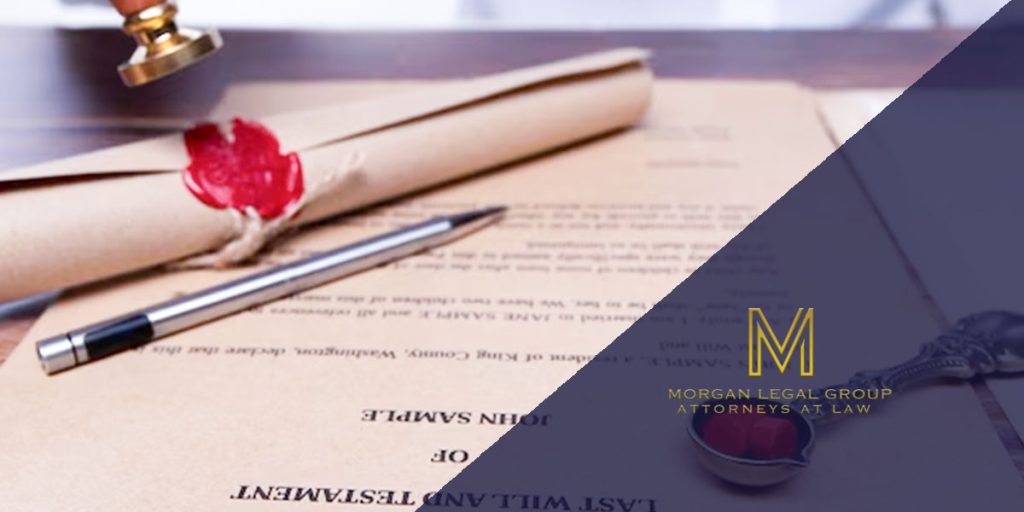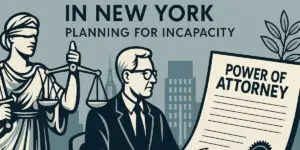Understanding the Authority of a Power of Attorney
A Power of Attorney (POA) is a crucial legal document that empowers individuals to make financial and legal decisions on behalf of others. In the state of New York, the authority and implications of a Power of Attorney are subject to specific laws and regulations. At Morgan Legal Group in New York City, we specialize in estate planning and legal matters. In this comprehensive guide, we will delve into the intricacies of a Power of Attorney in New York, providing you with a clear understanding of its authority and significance.
What is a Power of Attorney?
A Power of Attorney is a legal instrument that allows one person, known as the principal, to grant another person, known as the agent or attorney-in-fact, the authority to act on their behalf. The principal can grant the agent various powers, which can be broad or limited in scope, depending on their specific needs and intentions.
The authority granted in a Power of Attorney can cover a wide range of financial and legal matters, including:
- Managing bank accounts and financial assets
- Buying, selling, or managing real estate
- Handling tax matters
- Making healthcare decisions (in the case of a Healthcare Power of Attorney)
- Engaging in legal transactions
- Operating a business on the principal’s behalf
There are various types of Power of Attorney documents in New York, each serving specific purposes. Understanding the type and scope of authority is essential to ensure the document aligns with the principal’s intentions.
Types of Power of Attorney in New York
In New York, several types of Power of Attorney documents cater to different needs and circumstances. It’s crucial to choose the appropriate type to address your specific requirements. The common types include:
General Power of Attorney
A General Power of Attorney grants broad authority to the agent to manage various financial and legal matters on behalf of the principal. This document is often used when the principal anticipates needing assistance due to physical absence or other circumstances.
Limited Power of Attorney
A Limited Power of Attorney, as the name suggests, provides the agent with specific and limited powers. It is often used for one-time transactions or during the principal’s absence for a specific purpose, such as real estate transactions.
Springing Power of Attorney
A Springing Power of Attorney only becomes effective under specific conditions, typically when the principal becomes incapacitated or unable to make decisions. It is a precautionary measure to ensure that someone can act on the principal’s behalf when necessary.
Healthcare Power of Attorney
A Healthcare Power of Attorney is specifically for healthcare decisions. It allows the agent to make medical choices when the principal is unable to do so. This document often works in conjunction with a Living Will to outline the principal’s healthcare preferences.
Authority of a Power of Attorney in New York
The authority of a Power of Attorney in New York is granted within the legal framework of the state. New York has its specific laws and regulations governing the creation and use of Power of Attorney documents, primarily under the New York General Obligations Law, Article 5, Title 15.
Key points to understand regarding the authority of a Power of Attorney in New York include:
Signing Requirements
A Power of Attorney in New York must be signed by the principal and notarized. The notarization process involves the principal acknowledging their signature before a notary public. The principal must also provide a government-issued photo ID to verify their identity.
Durable Power of Attorney
In New York, a Power of Attorney is presumed to be durable, meaning it remains valid even if the principal becomes incapacitated. However, the principal can specify in the document that it is not durable or that it becomes durable only upon a specific condition (e.g., a medical evaluation confirming incapacity).
Agent’s Responsibilities
An agent under a Power of Attorney in New York is considered a f fiduciary, which means they are legally obligated to act in the principal’s best interests. They must manage the principal’s affairs prudently and ethically, and they are accountable for their actions.
Termination of Authority
The authority granted by a Power of Attorney can be terminated in several ways, including:
- The principal revoking the Power of Attorney
- The agent’s death, incapacity, or resignation
- The occurrence of a specific event mentioned in the document
It’s crucial for the principal to clearly define the conditions for termination in the document and to communicate their intentions to relevant parties, such as banks or financial institutions.
Challenges and Safeguards
While a Power of Attorney is a powerful legal instrument, it can also be vulnerable to abuse or misuse. To address these concerns, New York has implemented several safeguards to protect the interests of the principal:
Third-Party Reliance
Third parties, such as banks or healthcare providers, may rely on a Power of Attorney in good faith. They are generally protected from liability if they act in accordance with the document. However, they can request additional documentation or refuse to accept a Power of Attorney if they have reason to suspect fraud or improper use.
Agent’s Duty to Report
An agent has a legal obligation to maintain records of all transactions and decisions made on behalf of the principal. They may also be required to provide an annual accounting of these transactions. This transparency helps ensure that the agent is acting in the principal’s best interests.
Monitoring and Oversight
The court and concerned parties, such as family members or interested individuals, can monitor the actions of an agent under a Power of Attorney. If there are suspicions of wrongdoing, legal action can be taken to protect the principal and hold the agent accountable.
Conclusion
A Power of Attorney in New York is a valuable legal tool that empowers individuals to manage financial and legal matters on behalf of others. Understanding the types, authority, and safeguards associated with Power of Attorney documents is essential for both principals and agents. It’s crucial to work with an experienced attorney, like those at Morgan Legal Group, to create a Power of Attorney that aligns with your specific needs and ensures that your interests are protected.









